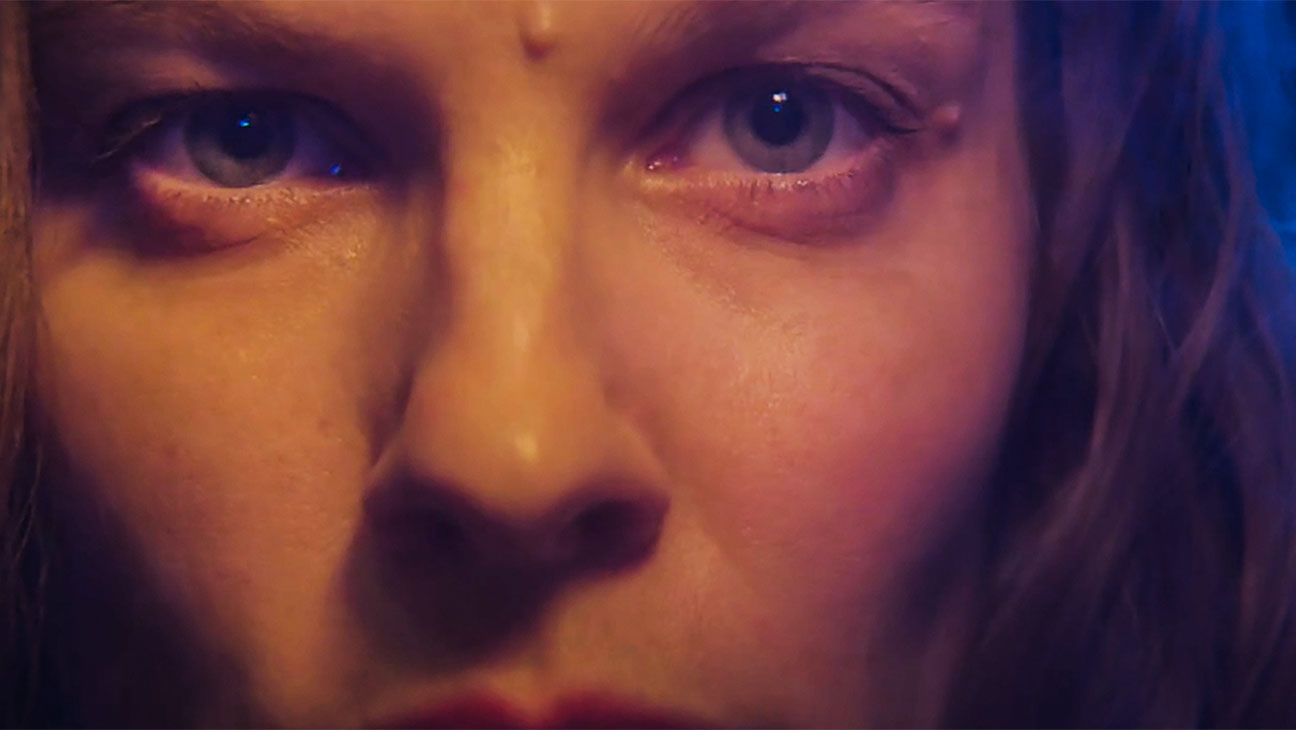Stalking is a very real and terrifying issue for people who risk dating or putting themselves out in the world in any way. There are unwell people who will latch on to and obsess over others to the discomfort and harm of both the obsessee and obsessor. However daunting that reality is, though, the psychology of a stalker is a fascinating one, as it reveals for exploration and analysis some dark avenues of human wants and needs. In its own modest way, this is what the film Thirst Street tries to do, and despite its silly, on-the-nose title it actually succeeds.
Our primary point-of-view character is Gina (Lindsay Burge), an American flight attendant who returns home to find her husband dead by suicide. Stricken by grief, she continues doing her job and finds herself on layover in Paris, where her coworkers convince her to go out to a bar to let loose and maybe meet another guy. She does, in fact, meet a new man by the name of Jérôme (Damien Bonnard), the bar’s bartender and a consummate lady’s man. After sleeping together, Gina is convinced she’s found the man of her dreams, so she resolves to move to Paris and to be with Jérôme forever.
Now, obviously Jérôme has different plans, thinking the affair was a one night stand and hoping to reunite with his own on-again, off-again girlfriend, Clémence (Esther Garrel), but Gina is determined to make her fantasies a reality. This kind of film lives or dies on its lead performance, and Lindsay Burge walks a veritable tightrope between sympathetic tragedy and criminal deviousness. Gina is a woman who lies and worms her way into situations that bring her closer to Jérôme, but she also has a cognitive block that prevents her from seeing anything wrong with doing so, believing that her actions are romantic and can only have one positive outcome. This is reinforced to the viewer by intermittent narration by Anjelica Huston that doesn’t so much detail the objective reality of the presented situation as it does establish Gina’s perceptions, creating a disconnect between what we know her to be thinking and what pain we see her inflict.
This is in service to a retro aesthetic that director Nate Silver has adopted in homage to French cinema of the 1970s. Sex is portrayed casually and without titillation, and scenes are shot with hues of intense multicolored lighting, conveying a scene’s emotions through color as well as performance. This lends the film a purposely artificial presentation that allows one to divorce oneself from the neighborly observations of the handheld cinematography, putting emotional distance from reality as Gina sees it and what is objectively going on.
However, as engaging as Gina’s descent into madness is, Thirst Street isn’t without its flaws. In particular, there are hints at further subplots lurking around the edges of what is an astoundingly short film at 82 minutes. Jérôme has a symbolically paternal relationship with the owner of his bar that only ever serves the narrative purpose of telling Jérôme that he needs to settle down with a good woman, even though the two clearly have more implied history that could have carried more scenes. The biggest tragedy, though, is an undercooked subplot involving Gina’s newfound friend Charlie (Lola Bessis), who in turn has a crush on Gina. This is established with the pair’s first meeting, promptly forgotten for the majority of the runtime, and only comes to a brief and blunt resolution during the third act in so swift a motion that its inclusion is baffling. Charlie’s restrained same sex attraction to someone who isn’t interested would make for a fascinating counterpoint to Gina’s obsession with Jérôme, but that potential is left dangling and unexplored, leaving Charlie as nothing but a sounding board for Gina to voice her thoughts when the film has already established a narrator to do just that.
Thirst Street is a short, simple film that nails its aesthetic and provides a compelling tale of how someone psychologically unwell can confuse obsession for love. The goal is not to make us sympathetic for this stalker or stalkers in general, but simply to further understand what drives them, and the terrifying truth is that each of us has the potential for obsession. Gina is what a person can become if singular drive consumes their life, but Thirst Street isn’t a morality play; it’s a credo on a mental and social illness that drives people into irrationality and harmful behaviors. And the fact that some of us may not be able to distinguish between compassion and oppression is the disturbing truth that this film brings to light.













